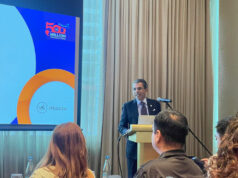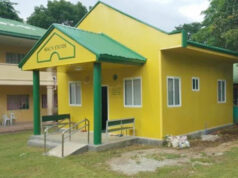DAVAO CITY — A recent assessment of the World Bank (WB)-funded Philippine Rural Development Project (PRDP) indicates economic and social gains from the construction of farm-to-market roads, which make up the bulk of approved projects in Mindanao.
“The newly constructed farm-to-market roads also create a huge impact in the lives of its beneficiaries where average household income increases of 64% accompanied with the increase in school attendance and higher enrollment numbers, improved peace and order, faster response to medical emergencies, improved supplies available at small local stores, and increased crop areas,” Frauke Jungbluth, WB senior economist and task team leader for PRDP, was quoted in a statement issued by the PRDP-Mindanao office.
Ms. Jungbluth was part of the WB team that visited Mindanao in early February to assess the implementation of the program.
Out of Mindanao’s P6.14-billion share from the initial P27-billion PRDP funding, about P5.77 billion has been allocated for infrastructure development, mainly farm-to-market roads. Enterprise development projects covered the remaining P365.07 million.
The infrastructure component of the project, based on the assessment report, completed 148.4 kilometers of farm-to-market roads, helping farmers reduce their travel time by half, cost of logistics by a third and increase production by half.
These roads have benefitted a total of 77,000 households, PRDP said.
PRPD-Mindanao cited South Cotabato as an example for the success of the project, where cassava production increased by 31%, selling prices by 9%, and average income by 47%.
“This is the result of the strong partnership of the DA (Department of Agriculture), local government units (LGUs), our farmer-beneficiaries and the strong support of our private sector,” said Ricardo M. Oñate, Jr., PRDP-Mindanao director.
Mr. Oñate also said that there have been “positive effects of mainstreaming PRDP innovations to provincial planning process.”
The WB also noted that the PRDP has led the government implementing agency, the DA, to institutionalize reforms that have allowed LGUs to improve efficiency in project implementation.
Among the mechanisms institutionalized are geo-tagging, which allows the monitoring and management of projects in real time.— Carmelito Q. Francisco



